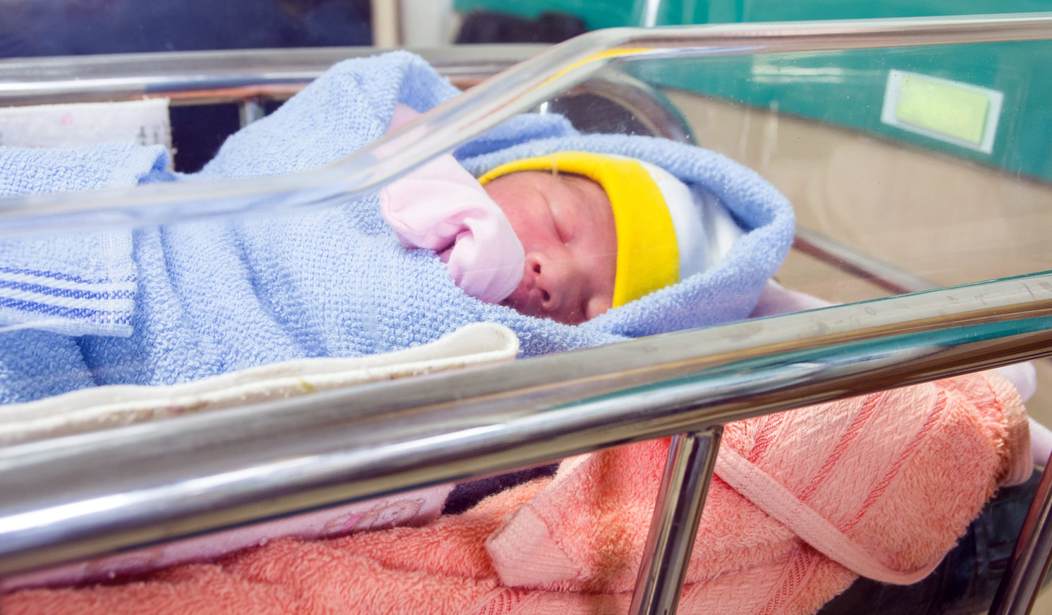The first state legislature in America to impose criminal penalties on women who use illegal drugs while pregnant has decided to let its fetal assault law expire when the legislation’s “sunset clause” takes effect July 1.
Tennessee Rep. Terri Lynn Weaver (R) sponsored the fetal assault law two years ago and still thinks it served a worthy purpose.
When Weaver introduced the fetal assault law proposal in 2014, 855 babies had been born the year before in Tennessee suffering from neonatal abstinence syndrome, more commonly known as drug withdrawal. In other words, as soon as they drew their second breath of life, the newborns were going cold turkey.
“These babies are born and their lives are totally destroyed,” Weaver told WSMV-TV.
Her legislation did provide an escape hatch for pregnant mothers who did drugs.
“This bill says we can get you help. If you go to drug court and come out clean, we’ll drop the charges,” Weaver said.
However, sometimes the treatment is the disease from which the women suffer. And often their drug use, at least in the beginning, was not illegal.
A Vanderbilt University Medical Center study showed that pregnant women are often prescribed opioids — narcotic pain relievers — which can result in an increased likelihood their babies will be wracked with the pain of neonatal abstinence syndrome.
“Historically, drug withdrawal for newborns has been described as illicit drug use such as heroin or women treated for previous opioid abuse, but this is really one of the first studies to look at legal prescriptions for pregnant women. And it draws attention to what is going on in our nation,” said lead author Stephen Patrick, M.D.
The study also showed the numbers of babies suffering from NAS, nationwide, have grown nearly fivefold since 2000.
“The findings of this study demonstrate that neonatal abstinence syndrome is a growing public health problem in the United States and places a tremendous burden on babies, their families and the communities in which they live,” said William Cooper, M.D., MPH, Cornelius Vanderbilt Professor of Pediatrics and Health Policy and the senior author of the study.
Brittany Hudson was a pregnant woman addicted to painkillers when she gave birth by the side of a road in Tennessee. Hudson said she was afraid of being arrested and charged with fetal assault.
Hudson was one of the first to be charged under the law in 2014. She argued against its extension in March. The Knoxville woman told WATE-TV the fetal assault law backfired.
“I truly believe that they had good intentions going in, but it’s not been the outcome they expected,” Hudson said. “I hope that they see addiction is a true disease and you’re not getting it behind bars. I didn’t get clean because of this law.”
But Kim Walker, a 26-year-old woman in Johnson City, Tenn., told Nashville Public Radio the fetal assault law gave her a path to being clean and sober.
When Walker gave birth to a drug-addicted baby in the bathroom of her home, she didn’t realize the painkiller she had been taking would affect her newborn child. But her son had to spend a month withdrawing from the drugs in a neonatal intensive care unit.
Walker chose the treatment option rather than going to jail, and has since given birth to a drug-free baby boy.
“If I didn’t go through what I went through, I’d probably be down that same road right now,” Walker said. “But now I’m a totally different person. And I’m on the good road, not the bad road.”
Sullivan County, Tenn., District Attorney Tony Clark tried to convince the Tennessee House Criminal Justice Subcommittee to extend the fetal assault law.
“I’m out there every single day in my office, East Tennessee, along with Sullivan County leads this state in drug-dependent babies,” said Clark. “We cannot let this bill die.”
Cases of neonatal abstinence syndrome rose while Tennessee’s fetal assault law was in effect. The Tennessee Department of Health shows the NAS caseload increased from 855 in 2014 to 975 in 2015.
Dr. Charles Robert Harmuth, an addiction specialist who is also a recovering drug addict, told the House subcommittee the fetal assault law was driving pregnant women away from prenatal care.
“They are in the closet and my feeling today is that this bill is not going to give them the freedom, the sense of relaxation and the trust in the system to come out of the shadows,” said Harmuth.
“I firmly believe these addicted moms need a second chance. America was built on second chances and I think this is what recovery is about,” he added.
Even though the law she championed will fade away, Rep. Weaver isn’t backing down.
“I’m just going to stand my ground on the fact that I believe wholeheartedly this bill does help and does help these women that are in situations that never would have gotten the help they needed,” she told the AP. “Who is going to be the voice of these babies?”









Join the conversation as a VIP Member